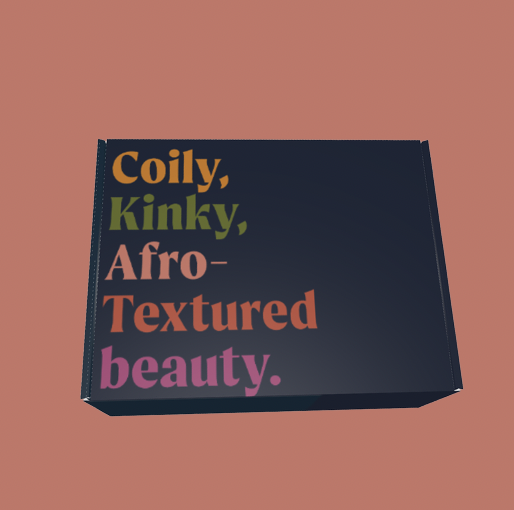The Pivot: Black Hair & Beauty Entrepreneurs are Innovating New Digital Content During COVID-19
These 5 creative women are adapting to the current climate, making quick adjustments to their businesses to continue to reach our communities from a safe distance.
Written by: Chris McKenzie
Minority-owned beauty services that have previously relied on their physical stores or in-person events to connect with customers are now having to pivot to using digital platforms. Though some states, like Georgia and Florida, have recently allowed some businesses to reopen, most states continue to deem beauty service providers non-essential businesses that are required to observe the shelter-in-place orders. In an effort to uplift and stay connected to their customers, businesses have begun to offer new services until it is safe to do business offline. I spoke to 5 entrepreneurs about how they are reaching out to those who feel disconnected from their forgone community of hair care professionals. From inspirational images to digital consulting services, here’s how they’re adapting:
Darian S. Harvin
Image Source: Natasha Campos
Reporter Darian S. Harvin has built a career covering beauty at the intersection of pop culture and politics for Refinery29, Teen Vogue, The New York Times and more. In a recently published piece, she writes about the impact of salon closures on Black women who “depend on consistent hair appointments to help them show up as their authentic selves — and who view those appointments as a form of self care — in a world where their overall appearance is often policed.”
After her followers expressed concerns about their own self-care and the businesses that provided it, she decided to take matters into her own hands. Inspired by the responses her piece received, Harvin added a beauty bulletin board to her BEAUTY IRL Newsletter, highlighting hair and beauty service providers that have had to shift their processes. She also launched “Beauty Headlines,” a weekly IGTV series dedicated to reporting beauty industry news. These innovations are focused on helping the community directly deal with this cultural loss, creating both a “destination for announcement of virtual workshops” and “a platform for [businesses] to promote their digital events.”
For a chance to have your business featured on BEAUTY IRL, you can learn more here.
St. Clair Detrick-Jules
Image Source: Jehoshua Otuya
Filmmaker and photographer St. Clair Detrick-Jules has been teasing out digital content from her soon-to-be released photography book, Dear Khloe: Love Letters to My Little Sister.
“[It’s] the first project that I've created for and about my community — Black women — so I'd say hair is a relatively new subject for me,” she says. Though the project has been rewarding, her inspiration was bittersweet: she created the book to empower her little sister Khloe, who had been bullied for her texture since the age of 4. Through the process of writing, the author came to recognize that she, too, had shame surrounding her hair. Her book turned out to be as cathartic for her as it was for her sister: “I've found that every Black woman has a hair story, and I'm grateful for the opportunity to provide a platform for Black women to share their stories and to uplift and affirm one another,” says the author.
While Dear Khloe’s original release date has been postponed due to COVID-19, you can check out some of the interviews and photographs that inspired its production on YouTube and Instagram.
Regina Gwynn
Regina Gwynn created her concierge natural hair styling service, TresseNoire, in 2014. As the company grew, there was an ongoing demand for hair care advice outside the space of an in-person appointment. After some time, Gwynn was scheduling just as many appointments for hair styling as she was for hair consulting.
This past February, she completely shifted her focus to consulting services, connecting with clients through a text message-based platform to help them figure out which hairstyles would best suit their specific needs.
In light of the pandemic, she recently launched Tresse Tips Live: weekly at-home styling tutorials hosted by Gwynn and a variety of special guests. She has also released a directory of beauty supply stores that are open, offering delivery services or have curbside pickup available during this time. “While these businesses are not ‘essential,’ women of color face unique challenges with working from home and a new normal of digital interaction that does require a few tweaks to your ‘Zoom Look,’ “ says Gwynn.
Alongside TresseNoire, Gwynn co-founded Black Women Talk Tech, a series of networking events for female founders of color. Similar to the inspiration behind TresseNoire, Gwynn decided to build a community that she wanted to see, but didn’t. Launching Black Women Talk Tech provided Gwynn with access to other entrepreneurs that could advise her and recommend resources for each phase of her other company’s development.
You can sign up for any of TresseNoire’s services here.
Dr. Ife J. Rodney
Image Source: Charles McClanahan
Dr. Ife J. Rodney is the Founding Director of Maryland-based Eternal Dermatology and Aesthetics. Her practice specializes in treating hair and scalp disorders for people of color. “While about 13% of the American population identify as African American, only 3% of dermatologists identify as such,” she says. “This huge disparity and lack of specialized dermatology care to patients of color is one of my main driving forces.” She treats disorders that are particularly prevalent in the Black community, like Central Centrifugal Cicatricial Alopecia — which can be caused by tight hairstyles, chemical treatments or the use of intense heating tools.
As many of her treatments are executed in-person, her team shifted quickly and began providing telehealth services to continue to support their patients. Though patients were now able to make video-based appointments, a new issue arose: many had more demanding schedules due to needing to homeschool small children or work longer office hours. In response, Dr. Rodney began offering after-hour and weekend appointments to adapt to her patient’s increasingly hectic lifestyles. She also made sure to increase the company’s digital efforts, sharing resources and information on hair and scalp care to their blog and social media pages.
“In the DMV areas, it's been over two months since we've been able to go to a hair stylist,” she says. “This has been a major source of frustration for my patients, but on the flip side, I emphasize that this is actually an opportunity to let their hair and scalp ‘breathe.’”
For more information and resources, visit her website.
Natanya Montgomery
Image Source: Alexis Ohanian on Instagram
Natanya Montgomery opened her San Francisco-based natural hair salon, Naza Beauty, this past February. She wanted to create a modern and sacred gathering space that removed some of the pain points that she experienced firsthand during her own salon visits. “Everything in the space is chosen to reflect and enhance the comfort of Black and brown women – from chairs designed to accommodate all types of hips, to cocoa butter and edge control in the bathroom,” says Montgomery.
The appointment booking platform also allows for personalized requests – one can select the level of chattiness of the stylist or which hand-crafted cocktail to be served. There is also an option to disclose any allergies or product sensitivities. Plus, there is a guarantee that an appointment will not last more than 4 hours.
Due to her clear understanding of the needs of her clients, Naza Beauty booked over 300 appointments within the first 20 days of being open. And when San Francisco’s shelter-in-place order was issued, Montgomery quickly released an at-home StyleBox, including products, extensions and the hair accessories needed to create natural or protective styles. In the making of this new product, she was “thinking through how the majority of our customers are Black and brown women, and how they’re being disproportionately affected — whether that be by layoffs or by the actual virus itself.”
As another, more hands-on means of interacting with her clients at home, Montgomery has started hosting a series of virtual events, including an “I Never Learned How to Cornrow” party. The community that she is building is also incorporated into the development of her haircare line. Customers can sign up to test and review products through Naza Labs before they are sold in the salon.
“There’s a lot going on in life,” she continues, “so we’re thinking through how we can act as a place of support and a little joy.”
You can sign up for any of her services on the Naza Beauty website.
Read more like this in The Money & Power Issue of our Journal
From learning when to scale back your budget to visualizing federal reparations, the Money & Power Issue tells the real story of Black wealth (or lack thereof) and reimagines a Black existence in America that imbues us with agency and perspective.
Depending on the state that you live in, you may have little to no access to hair supply or salon services. Fortunately, our community is creating alternative services for you – built by women who look like you. Eventually, more states will allow non-essential businesses to reopen. When that happens, we encourage you to continue to support these resources that have quickly adjusted to support us during the crisis.
Cover Image: a Braids & Twists StyleBox from Naza Beauty









